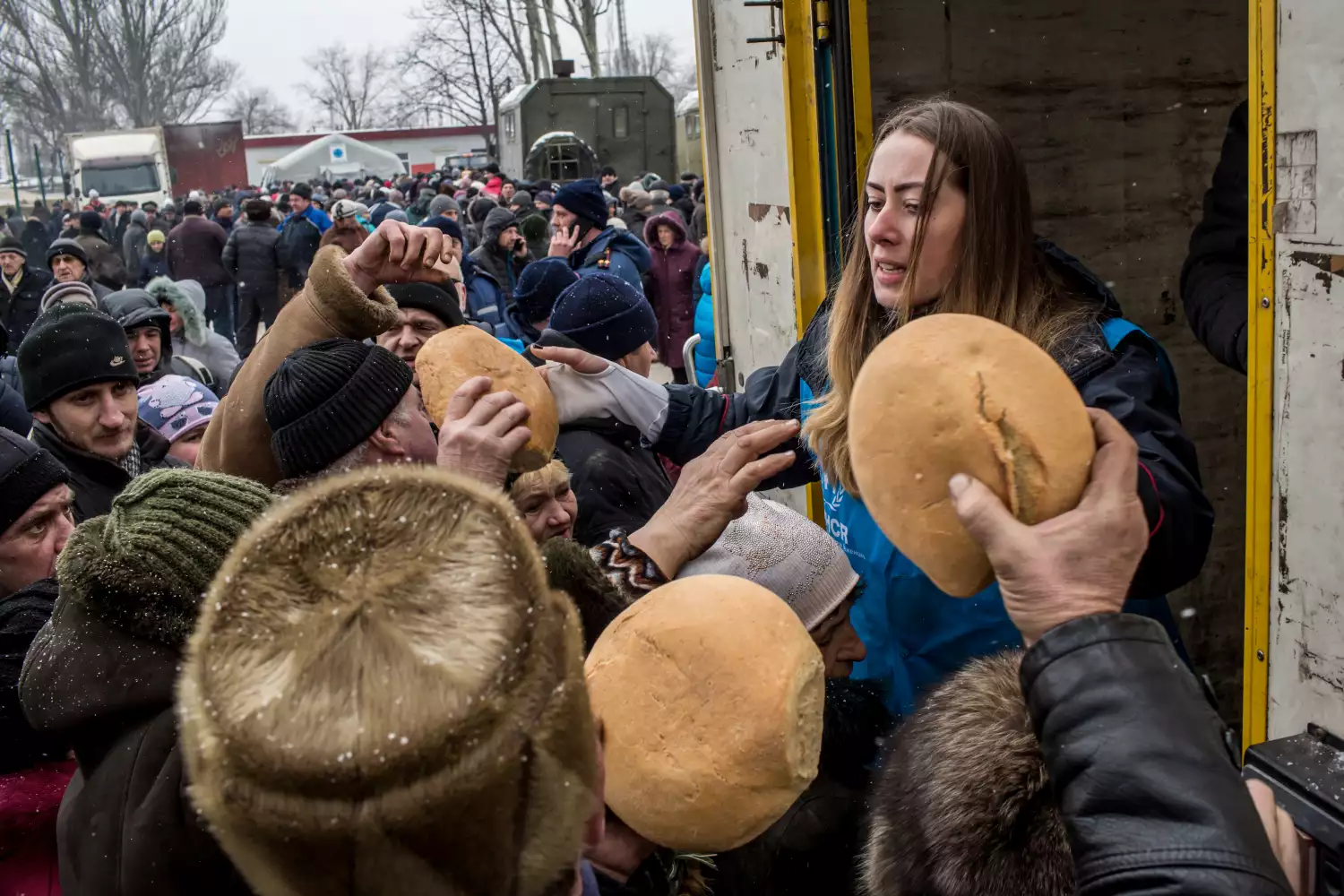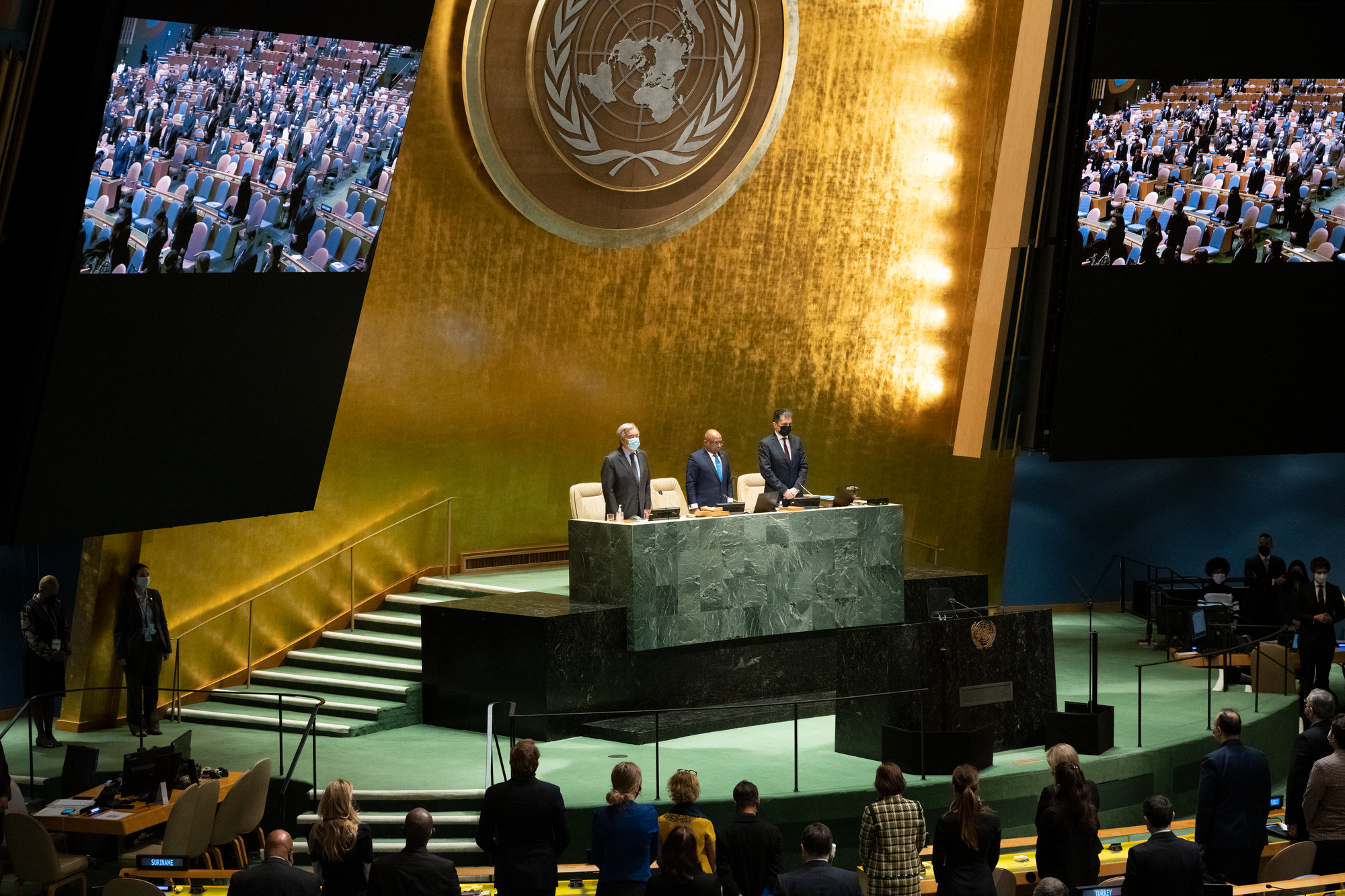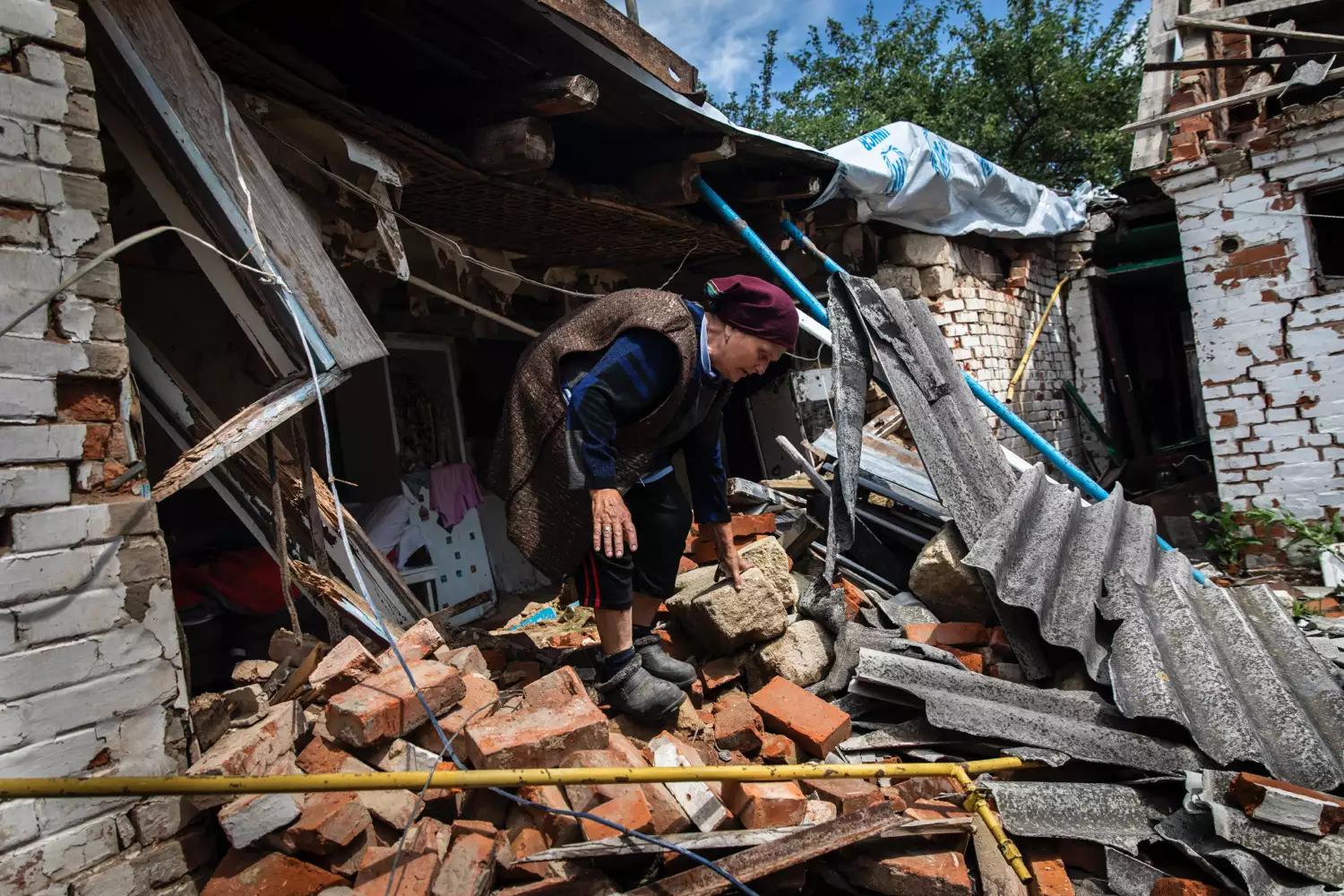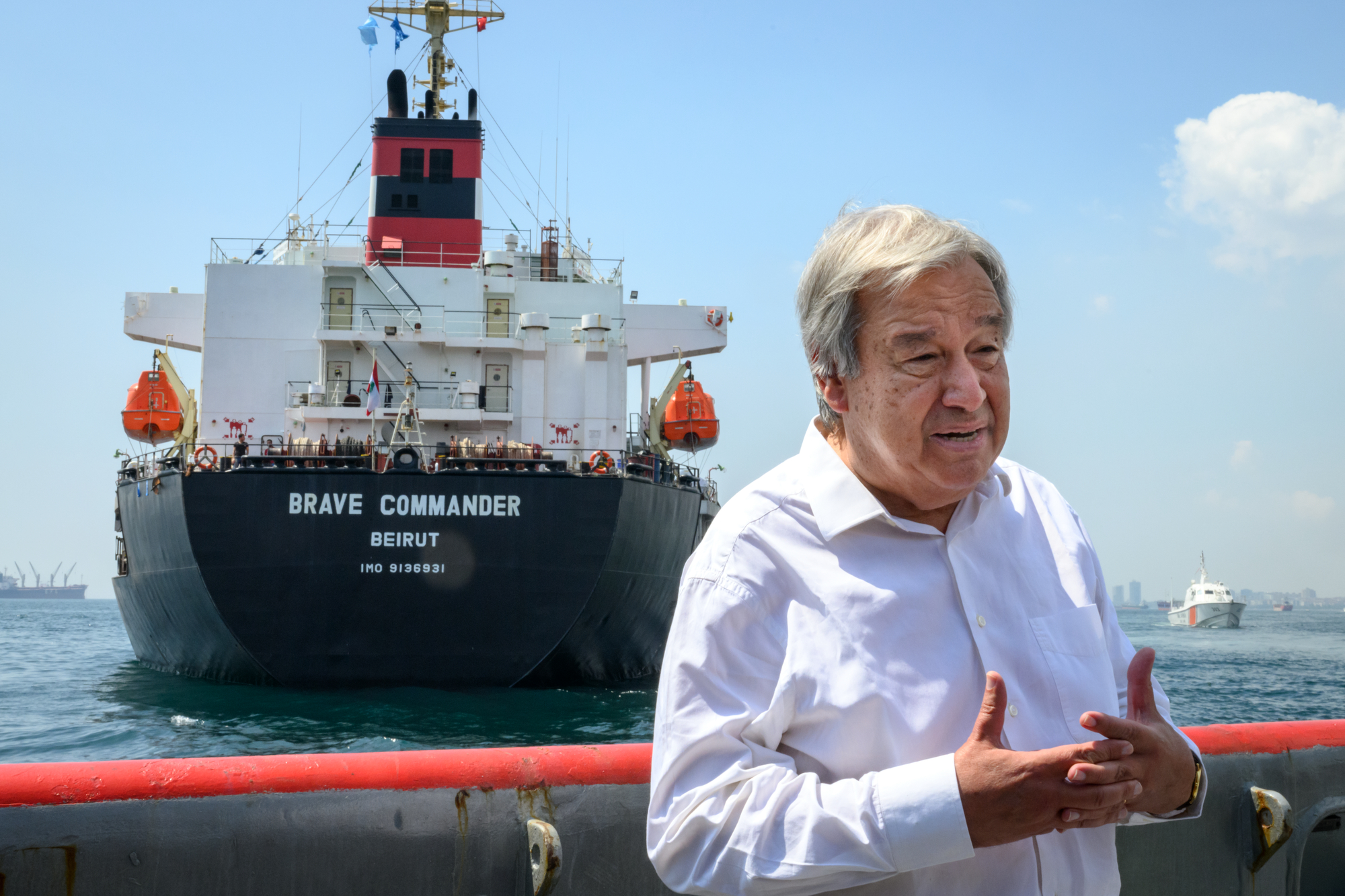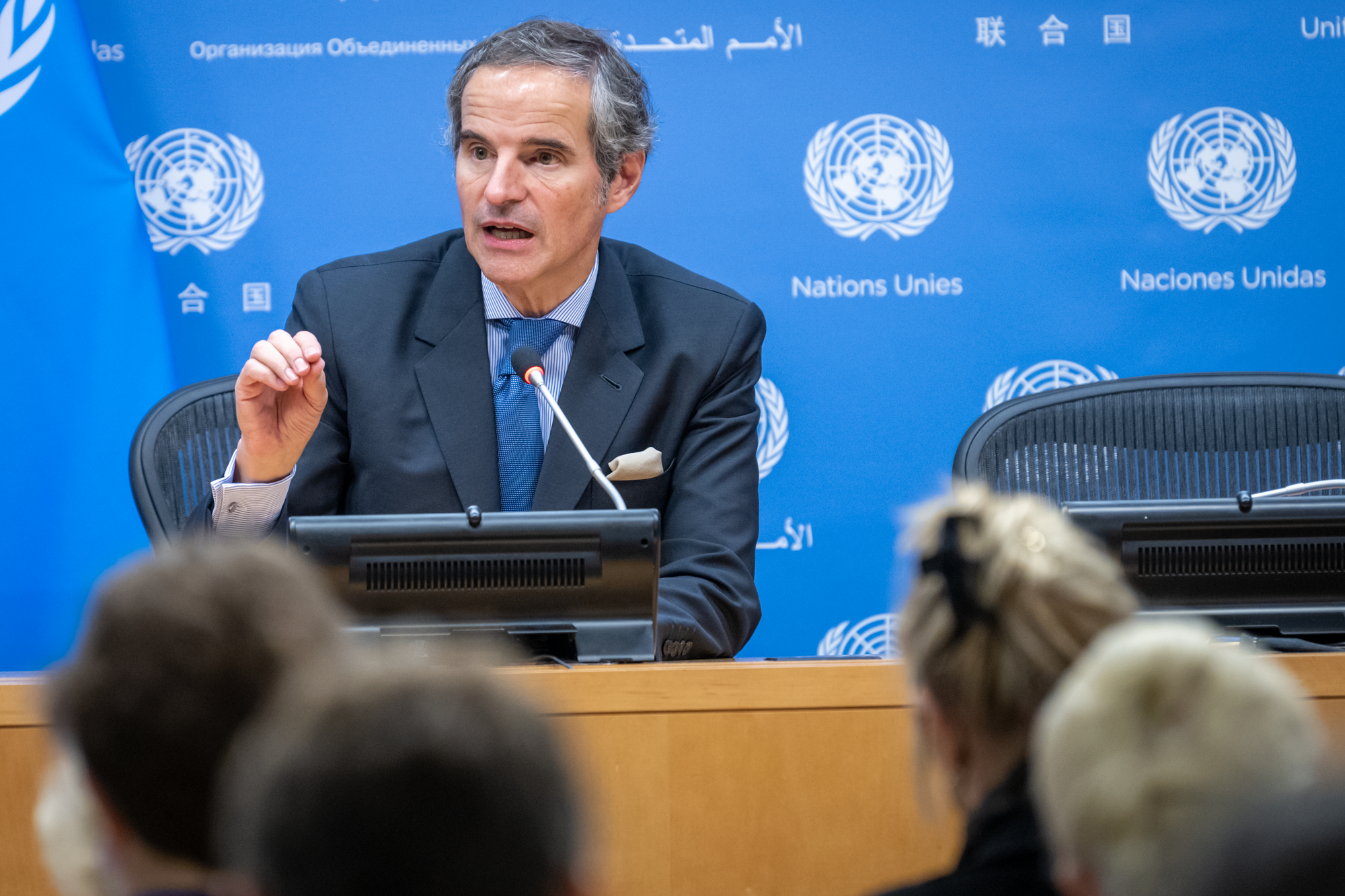“I want the Ukrainian people to know that the world sees you, hears you, and is in awe of your resilience and resolve. I also know that words of solidarity are not enough. I am here to zero in on needs on the ground and scale up operations. I am here to say to you, Mr. President, and to the people of Ukraine: We will not give up.”
– UN Secretary-General António Guterres, during a news conference with Ukrainian President Volodymyr Zelenskyy in Kyiv, April 28, 2022
Russia’s invasion of Ukraine has led to widespread devastation, killing thousands of Ukrainian civilians, causing the displacement of more than 14 million people, leaving upwards of 18 million in need of humanitarian assistance, and severely damaging the country’s economy. Beyond Ukraine, Russia’s illegal and brutal war has put significant stress on the international security order, revived fears of nuclear conflict, and exacerbated a global food security crisis that has left tens of millions of people hungry. Even before Russian troops and tanks crossed the border on February 24, 2022, the world was facing significant challenges, from the COVID-19 pandemic and climate change to long-running conflicts and humanitarian crises in Yemen, Syria, Afghanistan, the Horn of Africa, and elsewhere. Russia’s actions created new layers of complexity, danger, and horror for an already stressed international community.
The UN Security Council was established by the UN Charter to exercise “primary responsibility for the maintenance of international peace and security.” Unfortunately, Russia’s status as one of the five permanent veto-wielding members of the Security Council has prevented the Council from fully discharging this role regarding Ukraine. Nevertheless, the UN system as a whole has responded forcefully to the war and its fallout: UN humanitarian agencies are on the front lines delivering lifesaving aid to the Ukrainian people; the UN General Assembly and UN Human Rights Council have acted to isolate Russia diplomatically and begin the process of investigating and ensuring accountability for war crimes; the International Atomic Energy Agency is working to help avert potential disaster at Ukraine’s nuclear power plants; and the UN has helped negotiate and oversee an international agreement that ended a Russian blockade and allowed Ukraine to export agricultural products to global markets. Without these and other activities, the situation for people inside Ukraine and for millions more around the world would undoubtedly be far worse. Below is a more detailed picture of the UN’s multifaceted efforts to address the war in Ukraine and its global impacts.
